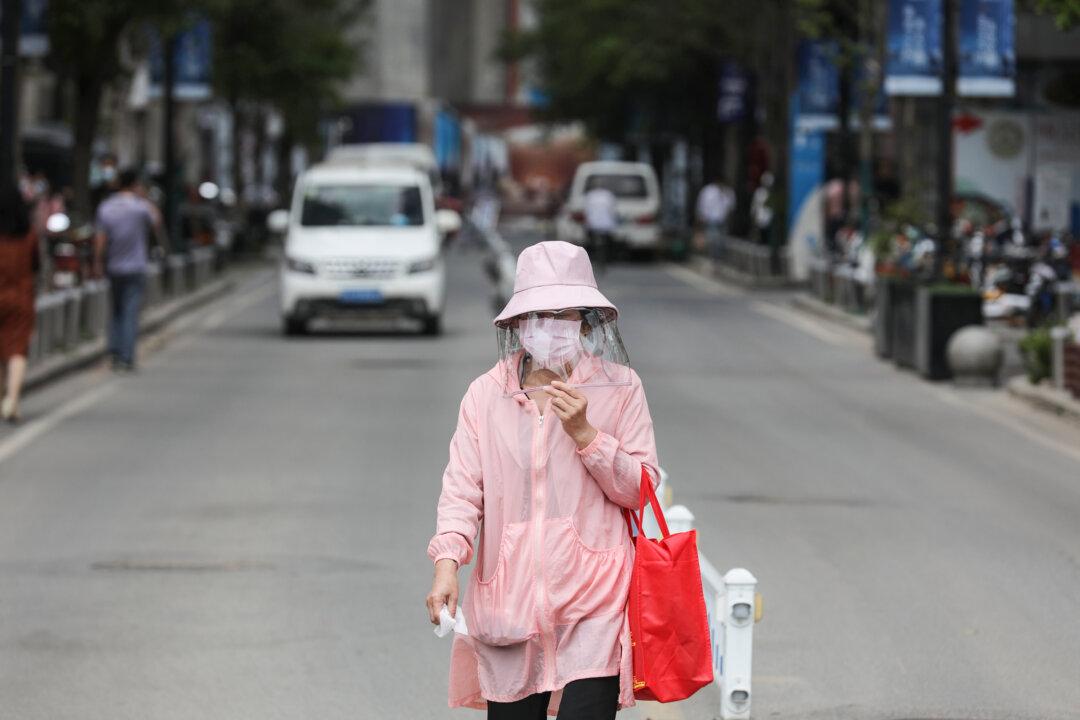A Chinese-American author has been censored on China’s internet after she published an article on WeChat, a Twitter-like Chinese social media platform, speaking about a Chinese mother’s plight.
Yan Geling is known for her fiction depicting the hardships and struggles of females in China, only this time she wrote an article about a real-life tragedy in the country.
In the video, the woman nods and shakes in response, but her answers are slurred and barely comprehensible. She is reportedly mentally ill and has given birth to at least eight children.
Yan’s article titled “Mother, oh, Mother” was published on Feb. 6 on the WeChat account “Survivor’s Poetry,” but was soon removed from the platform. Yan’s name can no longer be found using China’s search engines.
In her article Yan wrote that she herself was “kept to the other end of the chain,” and that the woman’s story would sound like “a ghost story” if told to Yan’s daughter.
“What kind of body is it? For more than twenty years it has been subjected to unending rape, its teeth were knocked out, its hair was torn out, it has been used as a vessel for bestial lust, and it has been through a reverse evolution: from human to inhuman,” Yan’s article said.
Government Response
Instead of taking care of the woman and probing into any possible criminal offenses in the case, the Chinese authorities have gone to great lengths to cover up the atrocities that happened to the woman. The video footage and all related comments were deleted after the video went viral. Yan’s is just one of the many silenced voices.Still, Chinese netizens tried to offer help to the poor mother. Some of them went to visit her in a village of Xuzhou City, of China’s east coast Jiangsu Province, where she was locked up.
“The public security authorities will definitely issue a notice of detention after measures have been taken against her, you know,” the police reportedly said in a recording posted by a netizen.
The local authorities have issued four contradictory statements regarding the identity and origin of the woman.
In the Jan. 28 statement, the county propaganda department said the woman’s name was “Yang ***xia,” claiming that she is mentally ill and legally married to her husband “Dong ***min.”
However, this statement increased internet outrage, as Chinese law forbids marriage involving mentally disabled persons. Commentators suggested that the husband would have committed rape and abuse over 20 years if the statements were factual.
Two days later, on Jan. 30, a joint investigation team from the county issued a second statement, claiming that Yang was taken in by Dong’s father while she was begging. A marriage registration staffer issued marriage certificates without verifying Yang’s identity.
On Feb. 8, a third statement was made on the CCP’s Central Television website. According to this statement, the woman was from China’s southwestern Yunnan Province and had a mental illness. Her teeth were lost “due to severe periodontal disease,” the CCP’s mouthpiece reported.
In a Feb. 10 statement, Dong was allegedly arrested for illegal detention of the woman and two other people were allegedly arrested for human trafficking, according to the Chinese regime’s propaganda mouthpiece Xinhua News Agency.
But netizens suspect that the woman is Li Ying, who went missing at the age of 12 or 13 from southwestern Sichuan Province, after they compared photos of the child and the woman.
The CCP’s top police body has refused Li Ying’s uncle’s request to discern the DNA of Li’s relatives, according to the RFA report. Li’s father passed away soon after Li’s disappearance.
“Li Ying’s father had 12 years of military service in Tibet, and this disappearance could easily cause anger among the veterans,” Cai Shenkun, a Chinese current affairs commentator, told the RFA.





